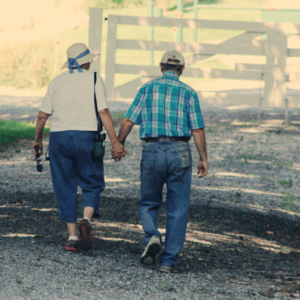Recognizing Toxic Relationship Behaviors
Spotting those nasty, invisible threads that make up a toxic relationship can be game-changing. It’s about understanding what makes a relationship toxic and how those sneaky behaviors can mess with your head and heart.
Understanding Toxic Relationships
Toxic relationships, they aren’t just about slammin’ doors and loud fights. They creep in with patterns that wear you down emotionally and mentally. These nasty habits often come from things like feeling insecure, wanting too much control, or just harboring grudges. When in such a mess, chit-chat crumbles, trust walks out the door, and your emotional vibe takes a hit.
Toxic actions have many faces, from sneaky mind games to aggressive outbursts. By learning how these relationships tick, folks can catch and tackle bad mojo early on, before things get outta hand.
Impact of Toxic Behaviors
Toxic vibes leave a mark. They can really mess with your mind and heart. People caught in this whirlwind often battle low self-worth, anxiety, the blues, and feel all alone in the crowd.
These behaviors eat away at the good stuff like trust and closeness. They turn conversations into arguments and mutual respect into resentment. If left to fester, the bad energy can seriously trash a relationship, sometimes beyond repair.
Catching these signs early on and knowing how they wreck things is the first move to nip ’em in the bud. By staying alert and reaching out when life gets rough, folks can turn the tide and build relationships that are full of life and love.
Signs of a Toxic Relationship
Trying to figure out if you’re stuck in a real-life horror show of a relationship? Look out for the top three sneak-attack signs: sputtering communication, bossy boots behavior, and the mighty avalanche of criticism.
Lack of Communication
If good chat is the glue holding stuff together, a toxic relationship is like trying to duct tape wet spaghetti. Misunderstandings and unresolved fights pile up, creating a chasm of icy silence between partners. Whether one or both steer clear of honest talks, it opens up the resentment Pandora’s box.
Yanking this problem by the roots means both folks need to learn to listen more and yap less. Creating a comfy zone for heart-to-hearts might involve couple sessions or joining some cozy chat workshops. Need a lowdown on keeping lines open? Swing by our chat on relationship deal breakers.
Controlling Behavior
Controlling behavior is like sand in your beachside picnic – nobody invited it, and it ruins the vibe. It sneaks up in forms like jealousy, possessiveness, and trying to remote-control your partner’s moves. Such stunts squash trust and personal space, leaving folks feeling like they’re living in a tiny box.
In the land of healthy love, partners cheer each other on without demanding a play-by-play of every decision. If you’re feeling the iron grip of control, draw a firm line in the sand and assert your own mojo. Guidance from a therapist or reaching out to kindred spirits can help sketch out a freer horizon. Dive deeper into dodging dangerously domineering dynamics in our piece on toxic behaviors in relationships.
Constant Criticism
A sprinkle of criticism can be the spice of progress, but constant negativity is like living in a blender full of lemons. When criticism swoops in without kindness, it’s the zapper that snuffs out confidence and happiness, leaving you wondering if you’re good enough.
In love’s brighter realm, feedback’s given with a heap of empathy and warmth. If you’re on the receiving end of a nitpick fest, speak up about how it makes you feel, set your boundaries, and don’t forget the self-care rituals that remind you of your awesomeness. For spotting more relationship tripwires, check our chat on signs of a failing relationship.
By staying on the lookout for these nasty little gremlins of toxicity, folks can dodge the drama and aim for relationships that lift them up. Prioritize emotional wellbeing, and you’ll find space to grow and heal.
Destructive Patterns
Relationships can be tough to handle, and it’s important to keep your eyes open for any troublesome behaviors that might hint at some toxic vibes going on. Being able to spot these things early on gives folks a chance to fix what’s broken or decide if it’s time to call it quits and skedaddle. Let’s look at the big three bad patterns: emotional manipulation, gaslighting, and cutting people off from their support network.
Emotional Manipulation
This one’s all about sneaky control tricks. Emotional manipulation could be someone messing with your head, making you feel bad unnecessarily or playing on your insecurities to bend your behavior their way. It’s those sly comments or guilt trips that leave you wondering what just happened. Over time, this grind on your confidence can leave you feeling hooked to the relationship in all the wrong ways.
Gaslighting
Ever feel like you’re losing your mind because someone’s making you doubt your own senses or memories? That’s gaslighting, a dirty trick where the other person denies reality, downplays your feelings, or switches the story around to confuse you. It’s like they’ve got you questioning your own sanity, leaving you feeling lost and disconnected from yourself.
Isolation from Support Systems
Trying to keep you away from your friends and family? That’s another warning sign. Toxic partners may try to cut you off from your crew, making it harder for you to reach out for help or get some outside perspective. The less you talk to others, the more control they have over you.
Spotting these bad patterns gives you the tools to smash toxic dynamics. Being clued up about emotional manipulation, gaslighting, and isolation can arm you to protect yourself and get help if you need it. Setting boundaries, leaning on your reliable peeps, and looking out for your own well-being are key moves in dealing with toxic relationships. Want more tips on setting boundaries? Check out our piece on relationship deal breakers.
Taking a step towards healthier, happier relationships means shining a light on these destructive patterns and dealing with them head-on. By being aware, seeking support, and focusing on what makes you feel good, you can build the confidence to tackle toxic behaviors with some real gusto.
Self-Reflection and Action
Dealing with toxic relationship behaviors can be tough. It’s all about getting real with yourself, making some smart moves, and heading towards relationships that actually feel good. Here, the focus is on setting up some boundaries and reaching out for help when you need it.
Setting Boundaries
Feeling like a relationship is off? Maybe it’s time to draw some lines. This is less about being bossy and more about knowing what’s cool and what’s not. It’s like saying, “Hey, here’s how I expect to be treated,” and making sure your partner gets it. These boundaries create an open space where you both can talk freely about your needs without any drama.
Setting boundaries isn’t just a defensive move—it’s about protecting your emotional turf and upholding who you are. It also gives you a chance to call out bad vibes, putting both parties on a better track to a healthier bond.
| Boundaries | What’s It About? |
|---|---|
| Emotional Boundaries | Speaking up about your feelings and what you can and can’t handle emotionally |
| Physical Boundaries | Knowing your comfort level with personal space or physical contact |
| Time Boundaries | Balancing priorities and respecting each other’s schedules |
Seeking Support and Guidance
Stuck in a toxic loop? It can feel like you’re lost at sea. But remember, getting an outside perspective can be a lifesaver. Whether it’s chatting with friends, leaning on family, or venting to a therapist, these folks bring a fresh take on your situation. They’re your sounding board, offering both comfort and practical advice.
Choosing to seek help isn’t giving up—it’s gearing up. Whether that means therapy, joining a group of people who get what you’re going through, or just doing something kind for yourself like journaling, take steps that make you stronger and smarter about your situation.
| Support Resources | What’s It About? |
|---|---|
| Individual Therapy | A private chat with a therapist who can help make sense of things |
| Support Groups | Gather with others who know what you’re dealing with |
| Self-Care Practices | Simple acts to boost your mood, like writing down your thoughts or meditating |
Through self-reflection, setting boundaries, and asking for help, you’re not just spinning your wheels—you’re moving forward. These actions can help turn a rocky relationship into one that’s fruitful and supportive or help you decide when it’s time to walk away. Remember, taking care of you is the best way to ensure a strong relationship full of trust and respect.
Moving Forward
Breaking free from toxic relationships is like spring cleaning for the heart. It’s about dusting off the past gunk and inviting in some fresh air for your mind and feelings.
Healing from Toxic Relationships
Getting over a toxic relationship is no walk in the park; it takes time and lots of self-care. A big first step? Admitting how much the old situation messed with you and starting your emotional recovery. Relying on friends, family, or a therapist can be a lifesaver, offering a safe spot to let it all out and make sense of things. Learn to set boundaries so you’re not sucked into the same drama again.
While you’re picking up the pieces, showing yourself love and kindness is a top priority. Do stuff that makes you smile, practice living in the moment, and take care of your body and mind. The goal is to mend the invisible bruises a toxic relationship can leave behind. Curious about creating boundaries? Check out our write-up on relationship deal breakers.
Building Healthy Relationship Skills
Once you’re healed up, it’s time to beef up your relationship skills—call it an emotional gym workout to dodge the next potential toxic tango. The basics of a good relationship come down to respect, talking things out, and trusting each other. Learning how to speak your truth and listen to your partner is crucial for growing real connections.
Getting good at respecting each other’s limits sets the stage for a solid relationship. This means being upfront about what you can handle and respecting what your partner lays down too. Talk it out right from the get-go, clearing the air before anything festers. Curious about what might be going wrong in a relationship? We’ve got that covered in our piece on signs of a failing relationship.
To keep things healthy, don’t forget to sprinkle some self-care and personal growth on top of your relationship pie. Focus on your goals and stay independent even when you’re paired up. By nurturing your own growth and keeping the lines of communication wide open, you can build a strong, happy relationship full of trust and support.
By focusing on self-healing, growth, and nurturing good relationship habits, you’re setting the stage for future happiness with others. Learning from past bumps and aiming for positive changes means you’re headed for connections that are built on self-awareness, confidence, and a whole lot of mutual respect.





